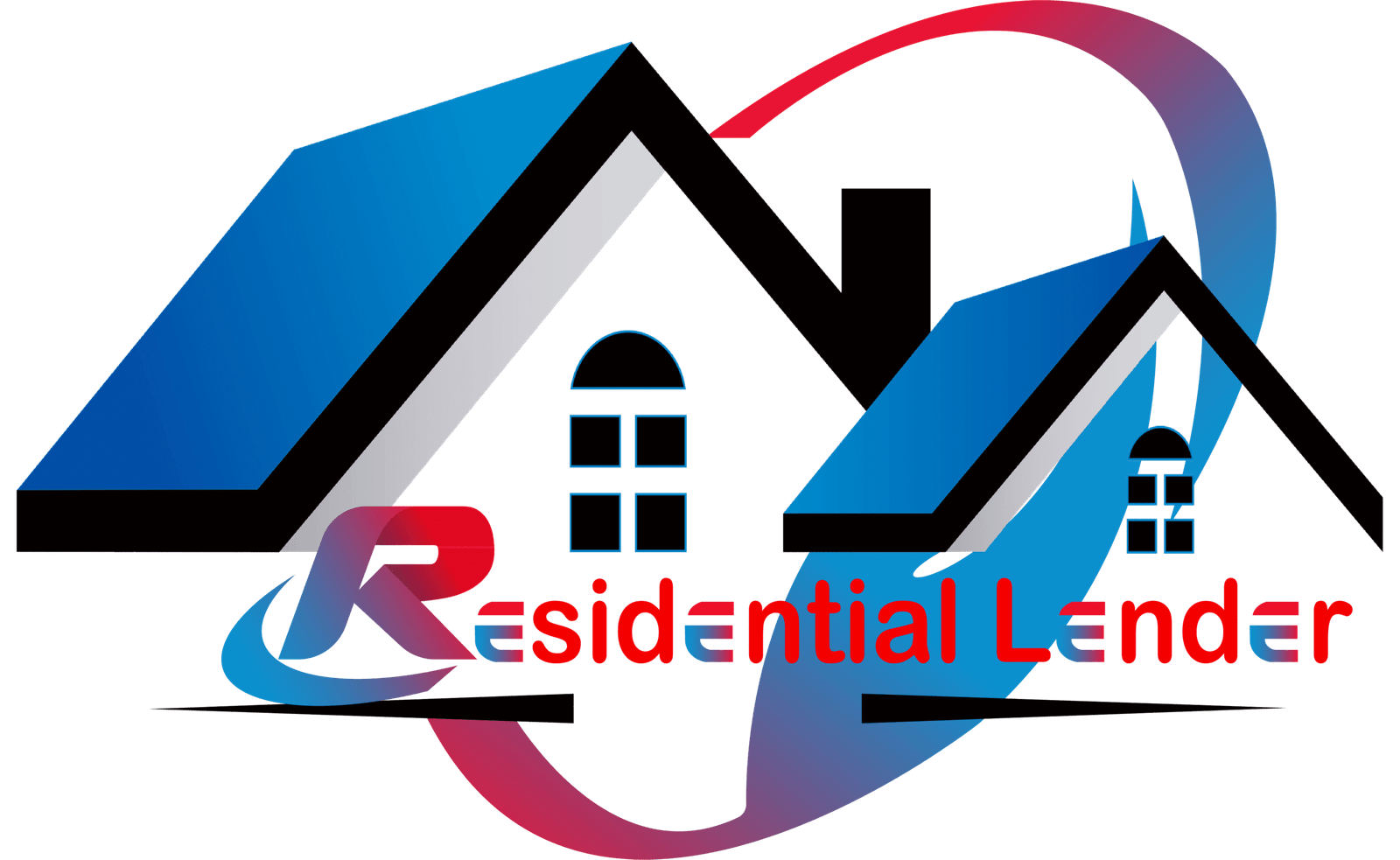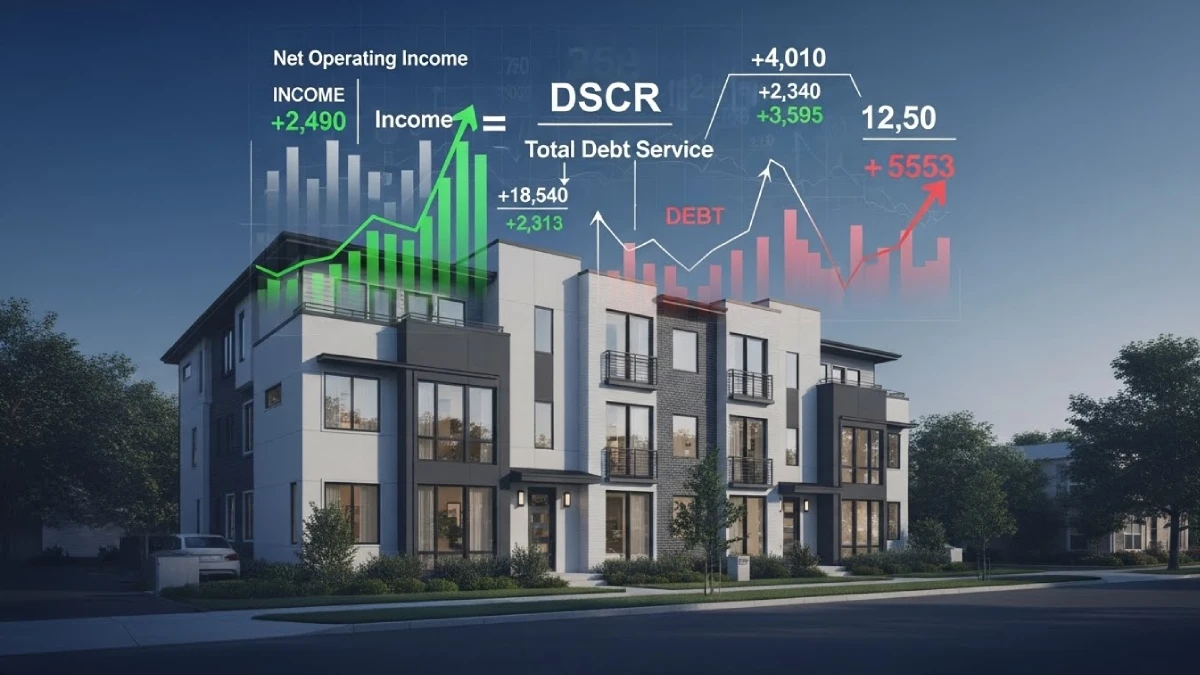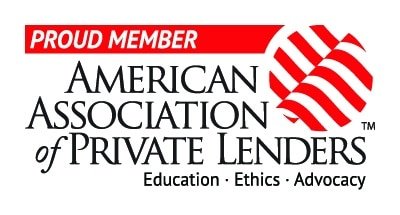Are you a real estate investor who’s tired of waiting weeks or even months for a traditional bank loan to close? Do you feel constrained by their strict and inflexible requirements? You’re not alone. The rigid nature of conventional financing can often cause you to miss out on lucrative investment opportunities. When a deal needs to close quickly, the slow pace of a traditional mortgage can be a significant roadblock.
That’s where hard money mortgage lenders come in. These lenders offer a faster and more flexible alternative to traditional banks, allowing you to secure financing in days, not months. Hard money loans are asset-based, meaning they focus on the value of the property rather than your personal credit history. This can be a game-changer for investors who need to act fast.
In this guide, we’ll explore the top seven benefits of working with hard money mortgage lenders. From speed and flexibility to less stringent requirements, we’ll show you why this type of financing is an essential tool for any serious real estate investor. As a trusted residential lender and a table and correspondent lender, we have the expertise to help you navigate this unique and powerful financing option.
What Are Hard Money Mortgage Lenders?
Hard money mortgage lenders are private individuals or companies that provide short-term, asset-based loans for real estate investments. Unlike traditional lenders, they don’t focus on your credit score or personal finances. Instead, they make lending decisions based on the value of the property being used as collateral. This makes them a go-to source for investors who need to close a deal quickly or who may not qualify for a conventional loan.
Hard Money vs. Conventional Loans
The key difference between hard money and conventional loans lies in what they’re based on. A conventional loan from a bank or credit union is based on the borrower’s financial strength, including their credit history, income, and debt-to-income ratio. The approval process is rigorous and can take several weeks or months to complete. ⏳
| Feature | Hard Money Loans | Conventional Loans |
| Approval Basis | Property’s value and potential profit | Borrower’s credit score and financial history |
| Lender Type | Private individuals or companies | Banks and credit unions |
| Speed | Fast (days to weeks) | Slow (weeks to months) |
| Requirements | Less stringent; less paperwork | Strict; extensive documentation |
| Loan Term | Short-term (6-24 months) | Long-term (15-30 years) |
| Interest Rates | Higher (reflects a higher risk) | Lower (for qualified borrowers) |
A hard money loan, on the other hand, is an asset-based loan. The lender’s primary concern is the value of the property itself—specifically, its post-renovation value (After Repair Value or ARV). This is why hard money loans are popular for fix-and-flip projects. The approval process is much faster, often taking just a few days, because the focus is on the property’s potential rather than the borrower’s personal financial history. While conventional loans offer lower interest rates and longer repayment terms, hard money loans are short-term, with higher interest rates that reflect the speed and flexibility they provide.
As a company, we work with over 200 private lenders and investors, which gives us a unique edge. This extensive network allows us to match you with the right lender and secure the best possible terms for your project.
Benefit 1: Speed and Efficiency
Hard money loans are a real estate investor’s secret weapon for speed. While a conventional loan can take anywhere from 30 to 60 days to close, a hard money loan can often be finalized in as little as 7 to 14 days—sometimes even faster. This incredible speed is possible because hard money lenders are private entities that focus on the property’s value rather than the borrower’s extensive financial history. They don’t have to navigate the complex, time-consuming approval processes and committees that traditional banks do.
Why Speed is Crucial for Real Estate Investors
For real estate investors, especially those focused on fix-and-flip projects, speed isn’t just a convenience; it’s a necessity. Every day a deal is delayed costs you money in the form of holding costs, like taxes, insurance, and utilities. A slow closing can also mean losing a prime investment opportunity to a competitor who can act more quickly. With a hard money loan, you can secure a property before other investors even have their traditional financing approved.
A Time-Sensitive Scenario
Imagine that you find a house that isn’t on the market but would be great for a fix-and-flip project. The owner has to sell quickly because of a personal issue, and you only have two weeks to close the deal. A standard bank would never be able to meet this deadline, but a hard money dealer can. With a hard money loan, you can quickly buy the house, start fixing it up, and be on your way to a quick sale that makes you money before anyone else does. One of the most significant benefits of using hard money mortgage lenders is that they let you move quickly on deals that need to be done promptly.
Benefit 2: Fewer Requirements
One of the best things about hard money loans is that they don’t have as strict requirements for acceptance. Getting a traditional loan depends a lot on your credit score, how much debt you have compared to your income, and how steady your income is. This can be a significant issue for individuals who have experienced financial difficulties in the past or those who work for themselves. The way hard money lenders do things is different, though.
Asset-Based Lending, Not Credit-Based
Hard money lenders operate on an asset-based lending model. This means their primary concern is the value of the property itself, not your credit score. They want to ensure the property is a solid investment with enough “after-repair value” (ARV) to secure their loan. This focus on the asset, rather than the borrower, makes hard money mortgage lenders an excellent option for investors who have a less-than-perfect credit history.
You may have heard of terms like “hard money for bad credit” or “no credit check hard money lenders”; these reflect this core benefit. While most lenders still perform a credit check to verify your identity and check for any liens or judgments, the score itself is not the primary deciding factor.
Reduced Paperwork and Fast Approvals
This type of loan has a more straightforward application process and less paperwork than a regular loan, as the focus is on the property. We offer “lite-doc” and “no-doc” options, so you won’t need to provide extensive documentation, such as tax returns, bank statements, or proof of employment. This not only speeds up the process but also makes it easier for busy buyers who don’t have time or money to gather a lot of financial paperwork. One crucial reason why hard money loans can close so fast is that the process is sped up.
Benefit 3: Flexibility and Customization
Traditional loans can’t compare to hard money loans when it comes to letting you make changes and be flexible. Since these loans come from private lenders who set their own terms, they can be changed to fit the needs, project, and timeline of an investment. This is a big plus because no two real estate deals are the same.
Versatility Across Property Types
Most of the time, conventional loans have strict rules about what kinds of properties they’ll fund. Hard money lenders, on the other hand, are much more flexible. Because of this, they are an excellent choice for many types of investments, such as
- Mixed-Use Properties: These properties, which combine residential and commercial spaces, are often difficult to finance with a conventional loan. Hard money lenders, however, are more willing to lend on these unique assets.
- Commercial Properties: When it comes to commercial property, hard money loans can be a lifesaver. They’re often used for quick acquisitions, renovations, or to bridge the gap while an investor secures a long-term loan.
- Land Loans: Traditional banks are very reluctant to lend on raw land. Hard money mortgage lenders for land loans are much more common, as they focus on the land’s development potential and the investor’s business plan.
- Fix-and-Hold and Fix-and-Rent Properties: Unlike fix-and-flip loans, which are meant to be paid off quickly, hard money loans for fix-and-hold or fix-and-rent properties can be structured as a bridge loan. This allows the investor to promptly acquire and renovate a property and then refinance it into a long-term rental loan once it’s stabilized.
The ability to use one type of financing for so many different situations gives investors the agility to pivot and capitalize on opportunities as they arise.
Benefit 4: Focus on the Asset, Not Just the Borrower
Banks and hard money lenders both examine the same factors, but they do so in distinct ways. A traditional loan depends on the borrower’s credit score, the amount of debt they have compared to their income, and how stable their income is. A hard money loan, on the other hand, is based on the asset itself. This changes everything for real estate owners who have a good deal but don’t have the personal finances that a traditional lender would need. This includes investors who work for themselves, people who have recently gone bankrupt, or people who just have bad credit.
This asset-centric method means that the underwriter, who assesses the risk of a loan, considers the property’s potential rather than the borrower’s past. An underwriter for a hard money loan looks at important things like
- After Repair Value (ARV): The property’s estimated value after renovations are complete. 📈
- Loan-to-Value (LTV): The loan amount compared to the property’s current “as-is” value.
- Exit Strategy: The borrower’s plan to repay the loan, whether by selling the property or refinancing.
We can look at a property’s possibilities and make a deal that works for both the investor and the lender because we have over 30 years of experience. We’ve looked at tens of thousands of homes and know exactly what makes an investment a good one. This lets us give flexible options and get you the money you need, even if a regular lender says no.
Benefit 5: Ideal for Investment Properties
Hard money loans are outstanding for a lot of different real estate strategies because they are meant to be used for investment properties. Hard money lenders are different from traditional banks because they only give money on properties that will make money. Investors who want to renovate, sell, and rent out homes will appreciate them for this reason.
Strategies Suited for Hard Money Loans
- Fix-and-Flip: Most of the time, people use hard money for this. Because these loans are quick and flexible, buyers can purchase a property that needs work, make the necessary repairs, and then sell it for a profit within a few months. The money from the sale is then used to pay back the hard money loan.
- Fix-and-Hold/Rental Properties: Individuals who want to purchase a house that requires renovation and then rent it out can utilize hard money as a bridge loan. The hard money loan provides them with the necessary funds to purchase the house and make the required repairs. The investor can refinance the property into a long-term rental loan with better terms once it is stable and making money.
- BRRRR Method: This common plan—Buy, Fix Up, Rent, Refinance, Repeat—can only work with a hard money loan for a short time and is based on assets. It makes it easy for buyers to quickly purchase a house, make repairs, and then refinance to recoup their investment.
For investors focusing on long-term rental properties, we also offer a DSCR (Debt Service Coverage Ratio) loan. This type of loan is ideal for investors who already have several rental properties and don’t want their personal income or credit to be a limiting factor. The DSCR loan is based on the property’s cash flow, making it easier to qualify for multiple properties.
Benefit 6: Overcoming Geographic Limitations
Real estate investors often have a hard time finding a local lender who knows their market and is ready to finance a property that isn’t in their immediate service area. Many traditional banks have strict rules about where they will lend money. For example, they might not be willing to lend money on a house in a different state or even a different county. This can be a significant problem for owners who want to diversify their investments across areas where they can grow faster or earn higher returns.
When it comes to location, hard money lenders have a lot less to worry about. Many hard money mortgage lenders are willing to work with individuals from other states. This lets investors look for opportunities in different markets without being limited by a local bank. For buyers, this freedom opens up a vast range of options.
For instance, an investor who lives in a pricey area like California can use a hard money loan to buy a house in a state where prices are lower and the rental market is better. A big plus is that you can look for “best hard money mortgage lenders California” or “private hard money mortgage lenders near me” and get results that aren’t just in your area.
We work with more than 200 private loans and investors across the country. Because of our broad reach, we can help investors in many places and connect them with lenders who know the markets in which they are dealing. We can help you find the right financing option, whether you want to buy a home in a busy city or a quiet rural place.
Benefit 7: A Path for New and Experienced Investors
Hard money loans are often considered an excellent entry point for new investors. Since they are less reliant on a borrower’s credit history and more on the property’s potential, they allow new investors to get their foot in the door and build a track record of successful deals. Once a new investor has a few completed projects under their belt, they are more likely to qualify for a broader range of financing options. For experienced investors, hard money loans offer the speed and flexibility necessary to scale their operations, enabling them to quickly seize opportunities and outpace the competition.
We are committed to helping both new and experienced professionals succeed. That’s why we offer exclusive and non-exclusive referral programs for brokers. Whether you’re a seasoned pro or just starting your career, our programs can provide you with the tools and support you need to help your clients secure funding and grow your business.
Pros and Cons of Hard Money Mortgage Lenders
Like any financial product, it’s essential to understand the whole picture before committing. Here is a quick rundown of the pros and cons of hard money loans:
Pros:
- Speed: Much faster closing times than traditional loans.
- Flexibility: Customizable terms and fewer requirements.
- Accessibility: Easier for investors with less-than-perfect credit.
- Versatility: Can be used for a wide range of property types.
Cons:
- Higher Costs: Hard money loans typically come with higher interest rates and fees.
- Shorter Terms: Loan terms are usually shorter, ranging from 6 to 24 months.
- Larger Down Payment: Most lenders require a higher down payment.
While the costs are higher, the speed and flexibility often outweigh them, especially for profitable short-term projects.
Key Factors to Consider When Applying for a Hard Money Loan
To ensure a smooth application process, it’s crucial to be prepared. Here’s a brief guide to the essential requirements and what to expect:
- Requirements: Hard money lenders primarily focus on your “exit strategy”—your plan to repay the loan. This could be selling the property or refinancing. They will also look at the property’s value, the loan-to-value (LTV) ratio, and your real estate experience. While not the main factor, a credit check is still performed to verify identity and check for any major red flags like judgments or liens.
- How to Find a Lender: Word of mouth, online research, and working with a mortgage broker are all great ways to find the right hard money lender. A reputable lender will have a solid track record and be transparent about their terms and fees.
- Application Process: The process is typically much more streamlined. You’ll need to provide documentation about the property, including a detailed business plan, a scope of work for renovations, and a clear timeline for the project. Be ready to prove that the deal is a solid investment.
- Interest Rates: Hard money loan interest rates are typically higher than conventional loans, often ranging from 8% to 15% or more, depending on the loan-to-value ratio, the property type, and the investor’s experience. You should also expect to pay “points,” which are upfront fees, typically 2% to 4% of the loan amount.
Conclusion
Hard money mortgage lenders offer a robust set of benefits for the savvy real estate investor. They provide speed and flexibility to close deals quickly, offer asset-based lending that focuses on the property’s value rather than the borrower’s credit, and can be used for a wide range of properties. Hard money loans are also a fantastic tool for overcoming geographic limitations, and they provide a clear path for both new and experienced investors to grow their portfolios.
For serious real estate investors, hard money isn’t just a last resort—it’s a strategic tool. With 30 years of experience and a vast network of over 200 private lenders nationwide, we are the expert partner you can trust to navigate the complexities of real estate financing.
Ready to take the next step? Contact us today to explore your options and get your real estate project funded.
Ready to get started? Contact us today by filling out our online form. We’re here to help you turn your real estate vision into a reality.
FAQs
Q: Do I need an appraisal for a hard money loan?
A: Yes, most hard money lenders still require some form of property valuation, though it may not be a traditional bank-style appraisal. They will typically use a broker’s price opinion (BPO) or a streamlined appraisal to quickly assess the property’s current “as-is” value and its after-repair value (ARV). This helps them determine the loan amount and ensure the asset provides sufficient collateral.
Q: What are the risks of a hard money loan?
A: The primary risks are the higher costs and shorter loan terms. Hard money loans have higher interest rates and fees, which can quickly erode your profits if the project is delayed. The short repayment term (typically 6-24 months) means you have a tight deadline to complete your project and either sell or refinance the property. If your plan falls through, you could face financial penalties or even foreclosure.
Q: Can I refinance a hard money loan into a conventional loan?
A: Yes, this is a common exit strategy for investors using the BRRRR method (Buy, Rehab, Rent, Refinance, Repeat). Once the property is renovated and a tenant is in place, you can apply for a long-term conventional loan or a DSCR loan to pay off the hard money loan. You’ll need to meet the traditional lender’s requirements, which may include a good credit score and a low debt-to-income ratio.
Q: Are hard money loans available for owner-occupied properties?
A: No, generally, hard money loans are for investment properties only. Federal regulations, such as the Dodd-Frank Act, place strict consumer protection rules on loans for primary residences. Hard money lenders typically avoid this complexity by focusing on commercial and investment properties, which are not subject to these same regulations.
Q: How do hard money lenders calculate loan amounts?
A: Hard money lenders calculate loan amounts based on a property’s loan-to-value (LTV) and loan-to-cost (LTC) ratios, with a strong focus on the after-repair value (ARV). They will lend a percentage of the property’s value, typically 65-75% of the ARV, which includes the purchase price and renovation costs. This ensures the lender has enough equity in the property to protect their investment.








